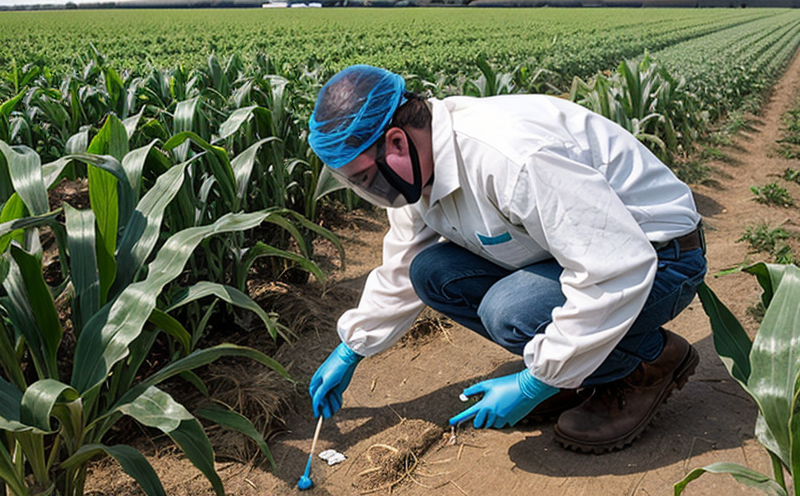Carbamate Pesticide Residue Testing
In agriculture and forestry, the use of pesticides is critical to maintaining crop health and yield. Carbamates are a class of insecticides that act by inhibiting acetylcholinesterase enzymes in insects, leading to paralysis and death. However, their widespread use can result in residues on crops, which may pose risks if they exceed safe limits.
Carbamate pesticide residue testing is essential for ensuring compliance with international standards and regulations that protect both human health and the environment. This service involves a series of analytical steps designed to detect carbamate residues accurately and reliably. The process begins with the collection and preparation of samples, followed by extraction techniques such as solid-phase extraction or QuEChERS (Quick, Easy, Cheap, Effective, Rugged, and Safe).
After sample preparation, instrumental analysis using gas chromatography-mass spectrometry (GC-MS) or liquid chromatography-tandem mass spectrometry (LC-MS/MS) is employed to identify and quantify carbamate residues. These methods provide high sensitivity and specificity, enabling detection of even trace levels of pesticides in complex matrices like fruits, vegetables, grains, and other agricultural products.
The accuracy and precision of the test results are paramount for regulatory compliance and consumer safety. Our laboratory adheres to strict quality control measures throughout the testing process, ensuring reliable data that can be trusted by stakeholders across the supply chain. The following table outlines some key applied standards used in our carbamate pesticide residue testing:
| Standard | Description |
|---|---|
| ISO 17025:2017 | Laboratory Accreditation Requirements |
| ASTM D8046-19 | Spectrophotometric Determination of Pesticides in Water |
| EN 15662:2008 | Determination of Residues of Pesticides in Foodstuffs by Liquid Chromatography-Mass Spectrometry (LC-MS/MS) |
Our team of experienced scientists employs state-of-the-art equipment and follows established protocols to deliver accurate, reproducible results. Compliance with international standards ensures that our testing methods are robust and up-to-date, reflecting the latest scientific advancements.
Why It Matters
The presence of carbamate residues in crops can have significant implications for various stakeholders involved in agricultural production. For quality managers and compliance officers, ensuring that carbamate levels do not exceed maximum residue limits (MRLs) is crucial to avoid costly penalties and reputational damage. Failure to comply with regulatory requirements may lead to product recalls or even bans at national and international markets.
R&D engineers benefit from our comprehensive testing services by gaining insights into the behavior of carbamates under different environmental conditions. This knowledge can help refine formulations, improve application techniques, and develop safer alternatives that still effectively manage pests without compromising crop quality.
For procurement teams, accurate carbamate residue testing helps source high-quality raw materials while minimizing risks associated with non-compliant products. By partnering with laboratories adhering to stringent quality standards like ISO 17025:2017, procurement professionals can ensure they are making informed decisions that align with company goals and regulatory expectations.
- Compliance with international regulations
- Promotion of safe and sustainable agricultural practices
- Informed decision-making for R&D teams
- Reduction in operational risks for procurement departments
- Enhanced reputation among consumers





